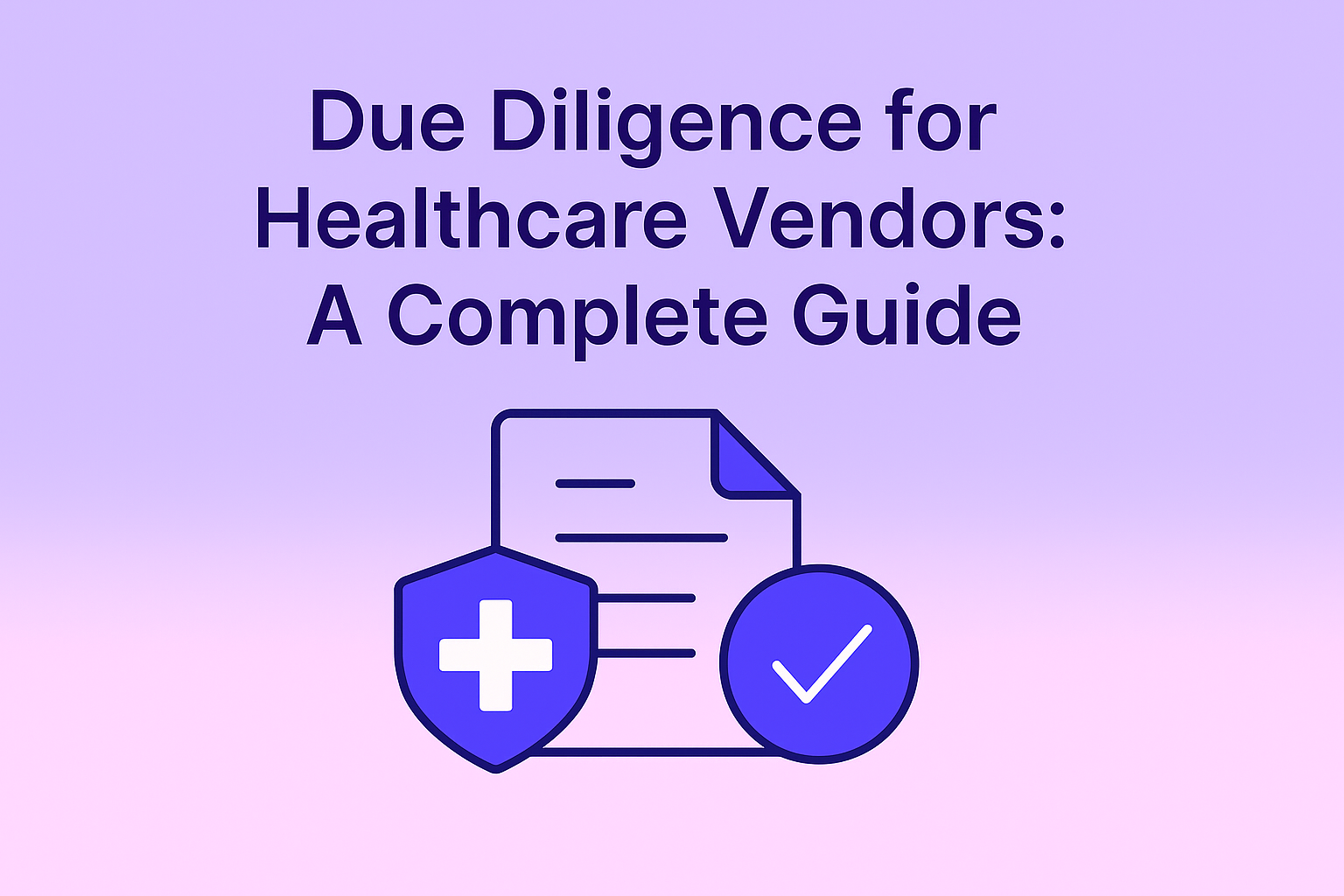
Healthcare organizations face some of the strictest regulatory, privacy, and security requirements of any industry. Hospitals, insurers, health systems, medtech companies, and digital health platforms must verify that every vendor they work with meets the standards required to protect patients, PHI, clinical workflows, and operational continuity.
This makes vendor due diligence a mandatory — and often lengthy — part of the procurement process. For healthcare vendors, the quality of your due-diligence responses determines how fast you move through vendor risk review, security assessments, contracting, and implementation.
This guide explains how due diligence works in healthcare, what buyers expect, and how vendors can streamline accurate, audit-ready responses efficiently.
Healthcare due diligence is a structured evaluation process used by:
Its goal is to determine whether a vendor is secure, compliant, reliable, and safe to introduce into clinical or administrative workflows.
Due diligence covers:
For related assessments, see What Is Security Questionnaire Automation?
Vendors may process PHI, claims data, lab results, imaging, patient histories, or billing information.
Covered entities must verify that vendors have proper administrative, physical, and technical safeguards.
Any downtime could interrupt care delivery.
Healthcare tech stacks involve multiple dependencies — all must be vetted.
Healthcare is the #1 target for ransomware and data breaches.
Healthcare vendors must demonstrate readiness across HIPAA, HITECH, SOC 2, ISO, HITRUST, and state-level laws.
Healthcare DDQs vary by organization, but most follow a similar structure.
Vendors must disclose all third-party platforms they rely on.
Healthcare DDQs often exceed 500–1,500 questions.
Different hospitals ask the same questions in different formats.
Security, engineering, compliance, legal, and clinical operations all contribute.
Buyers often require copies of policies, diagrams, certifications, and architecture overviews.
Any inconsistent or incomplete responses lead to delays.
Iris centralizes your security, compliance, and operational documentation — and uses AI to automate large sections of healthcare DDQs with accuracy and consistency.
With Iris, healthcare vendors can:
Iris instantly populates:
Every answer pulls from a single approved knowledge base.
Engineering, compliance, and security teams only review the small percentage of high-risk questions.
Iris stores:
Iris removes the chaos of spreadsheets and email chains with:
Excel, portal exports, PDFs — all supported.
Healthcare buyers expect exhaustive due diligence — and vendors who respond clearly, consistently, and with strong security posture stand out immediately. With Iris, healthcare companies can complete DDQs dramatically faster, reduce SME workload, and deliver the audit-ready responses that procurement and security teams require.
Vendor due diligence is essential in healthcare because hospitals, payers, and clinical systems must ensure that every third-party vendor can securely handle PHI, maintain clinical workflow continuity, and meet regulatory requirements like HIPAA, HITECH, SOC 2, ISO 27001, and HITRUST. A single vendor failure can disrupt patient care, cause regulatory violations, or expose sensitive health information. Thorough due diligence protects clinical operations, reduces cybersecurity risk, and ensures technology partners are safe to integrate into healthcare environments.
Iris accelerates healthcare due diligence by using an AI-powered, centralized knowledge base to auto-fill repetitive DDQ content — including HIPAA safeguards, PHI handling workflows, access control practices, clinical reliability processes, and SOC 2 or HITRUST summaries. Instead of manually answering hundreds of similar questions for each hospital or payer, teams can generate accurate, compliant drafts in minutes. Iris reduces SME workload, ensures consistent answers across all assessments, and helps vendors complete healthcare DDQs significantly faster.
Learn more: